Ultrasound diagnostics

Ultrasound diagnostics (ultrasound) is a widespread method for diagnosing diseases of internal organs using ultrasonic waves (mechanical high-frequency vibrations with a short wavelength).
Types of ultrasound:
- gynecological ultrasound (Pelvic organs);
- urinary system;
- abdominal organs;
- examination of the gastrointestinal tract;
- breast examination;
- examination of the thyroid gland;
- examination of the prostate gland;
- ultrasound in Pediatrics;
- vascular examination;
- joint ultrasound;
- echocardiography (ultrasound of the heart).
Advantages of diagnostics:
.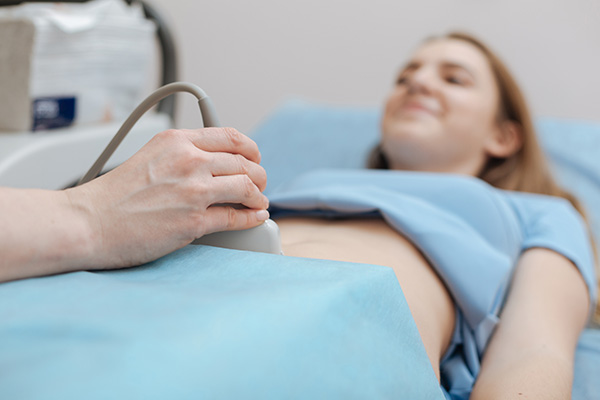
- Safety.
- High information content.
- Ability to diagnose pathologies at the earliest stages of development.
- The ability to conduct dynamic monitoring of the patient's condition.
- No radiation exposure.
- The ability to diagnose children from the first days of life.
- The ability to conduct research an unlimited number of times.
Purposes and objectives of ultrasound:
- Ultrasound examination allows you to examine the structure of internal organs, to detect foci of neoplasms, cavities, and cysts, various inclusions (stones, foreign bodies, etc.) in their composition.
- With the help of ultrasound, it is possible to measure the size of internal organs, the diameter of the vessels, the presence of constrictions or enlargements, as well as diagnostics allows you to calculate the speed of blood flow in the main vessels.
- Ultrasound examination (ultrasound) greatly facilitates the diagnosis of urinary and cholelithiasis - in a few minutes of examination, it is possible to determine the presence of stones in the organ, their size, shape, number.
- Ultrasound in surgery: study of the pathological area for targeted surgical intervention; evaluating the treatment used; Prevention of the development of complications.
- Ultrasound in obstetrics and gynecology: detection of abnormalities in the course of pregnancy and intrauterine fetal malformations.
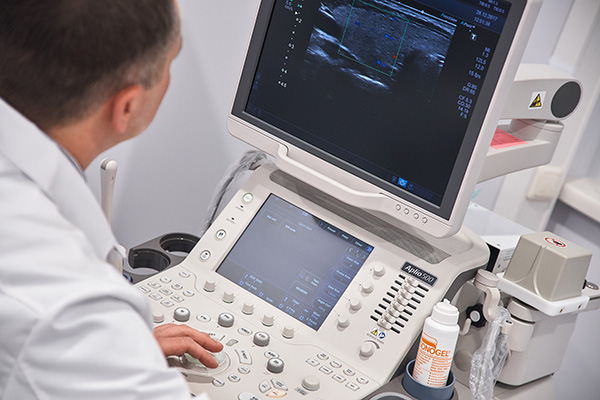
- The ultrasound examination procedure is extremely important for those suffering from hypertension, angina pectoris, and other diseases of the heart and blood vessels: in the process of diagnosis, the size and function of the heart, the absence or presence of defects, blood clots can be determined, and it is also possible to determine the zone of heart attack or aneurysm.
How often it is necessary to undergo the use:

Even if a person considers himself to be absolutely healthy and has no complaints, a medical examination must be carried out annually. It is worth noting that many serious diseases are latent in nature (focal formations, changes in the size of organs against the background of chronic diseases, etc.), and if such ailments are not identified at the beginning of their development, difficulties may arise with the treatment of diseases. It is the early and timely diagnosis that allows us to provide timely assistance and prevent the transition of an acute process into a chronic one, therefore, each person needs to do ultrasound diagnostics at least once a year.
Standard annual screening must include examinations of the following organs: thyroid gland, kidneys, abdominal organs (pancreas, liver, spleen, gallbladder), mammary glands in women, male and female pelvic organs.
Are there any contraindications for the ultrasound?
- skin diseases that do not allow the contact of ultrasonic sensors with the patient's body;
- obesity, impairing data visualization and making ultrasound less informative;
- urinary incontinence - it is not recommended to use ultrasound if a bladder examination is needed.
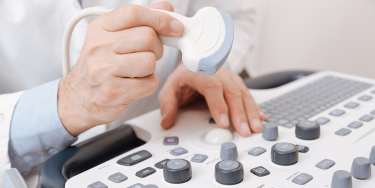
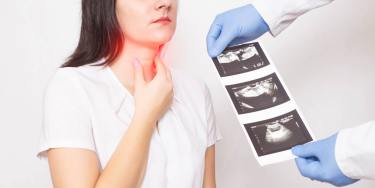
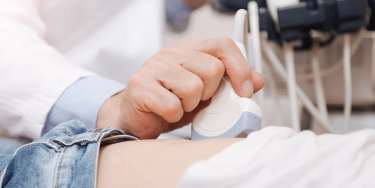
Rules for preparation for ultrasound research
Pelvic ultrasound in women - transabdominal (with bladder filling)
One hour before the study, drink 1 liter of water (juices and carbonated drinks are prohibited). Do not urinate - the test is done on a full bladder. You can eat and drink on the day of the study - the study is not carried out on an empty stomach.
Pelvic ultrasound in women - transvaginal (with filling bladder)
An ultrasound examination of the pelvic organs can be performed on any day of the menstrual cycle, except for the days of menstruation. If the diagnosis is unclear or needs to be clarified, it will be necessary to re-conduct a pelvic ultrasound on a certain day of the cycle (as recommended by the doctor). The pelvic organs (uterus, ovaries, fallopian tubes) are located deep in the abdominal cavity and are difficult to access by ultrasound. To improve the quality of the study, it is carried out with a special vaginal sensor transvaginally. Only in virgins, pelvic ultrasound is done through the anterior abdominal wall (transabdominal). In most cases, when the doctor performs a transvaginal examination, special preparation for the ultrasound of the small pelvis is not required: before the procedure, it is enough to empty the bladder. You can eat and drink on the day of the study - the study is not carried out on an empty stomach.
Ultrasound of the mammary glands
Ultrasound of the mammary glands is performed in phase I of the menstrual cycle - from 5 to 14 days from the onset of menstruation. No special training is required. You can eat and drink on the day of the study - the study is not carried out on an empty stomach.
Ultrasound of the kidneys and adrenal glands (standing and lying)
For better visualization, especially for obese people, it is advisable to use activated charcoal (reduces gas formation in the intestines) a day before the study (2-4 tablets in the evening on the eve of the study and 2-4 tablets in the morning). You can eat and drink on the day of the study - the study is not carried out on an empty stomach.
Ultrasound of the prostate gland (transrectal ultrasound + bladder + determination of residual urine)
Ultrasound of the prostate gland is performed through the rectum, therefore, a cleansing enema is needed in the evening, on the eve of the study, and in the morning. For better visualization, especially for obese people, it is advisable to use activated charcoal (reduces gas formation in the intestines) a day before the study (2-4 tablets in the evening on the eve of the study and 2-4 tablets in the morning). Drink 1 liter of water 1 hour before the study (juices and carbonated drinks are prohibited). Do not urinate - the test is performed on a full bladder. You can eat and drink on the day of the study - the study is not carried out on an empty stomach.
Ultrasound of the abdominal organs (liver, gallbladder, pancreas, spleen)
During an ultrasound examination, gases and intestinal contents can make it difficult to examine internal organs (liver, pancreas, etc.), so it is necessary to prepare the intestines accordingly. The study is carried out only on an empty stomach (do not eat or drink anything!). Last meal 6 hours before the study. One day (preferably even 2-3 days) before the study, exclude gas-forming products from the diet (vegetables, fruits, black bread, juices, carbonated drinks, milk and lactic acid products). For better visualization, especially for obese people, it is advisable to use activated charcoal the day before (reduces gas formation in the intestine) the day before the study (2-4 tablets in the evening on the eve of the study and 2-4 tablets in the morning) or take 2-3 days before the study "Espumisan" 2 capsules 3 times a day, and on the day of the study take 4 capsules once without drinking water.
Bladder ultrasound
Drink 1 liter of water 1 hour before the study (juices and carbonated drinks are prohibited). Do not urinate - the test is performed on a full bladder. You can eat and drink on the day of the study - the study is not carried out on an empty stomach.
No special preparation is required for ultrasound of the salivary glands, lymph nodes, soft tissues, joints, kidneys, pleural cavities, vessels of the neck and head, echocardiography (heart examination).
In some cases, the study requires additional preparation from the patient, the quality of which determines the degree of reliability of the information received.
Our advantages
Our services
Our service packages
Our doctors
Choose the clinic closest to you
ISO certificates
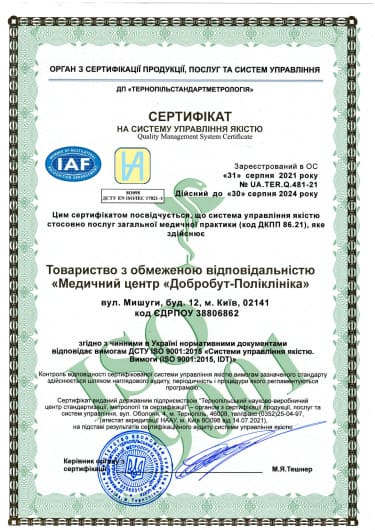
Accreditation certificates
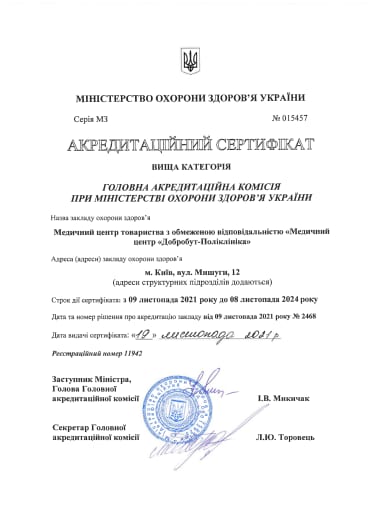
Medical practice licenses

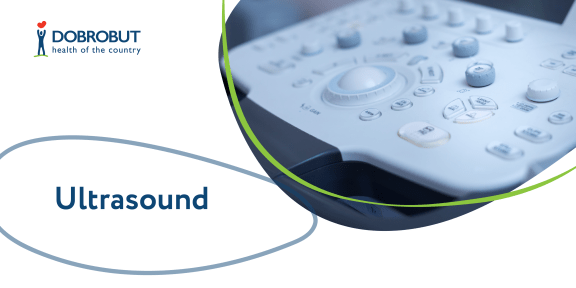































































@2x.png)
@2x.png)
%402x.png)
%402x.png)
